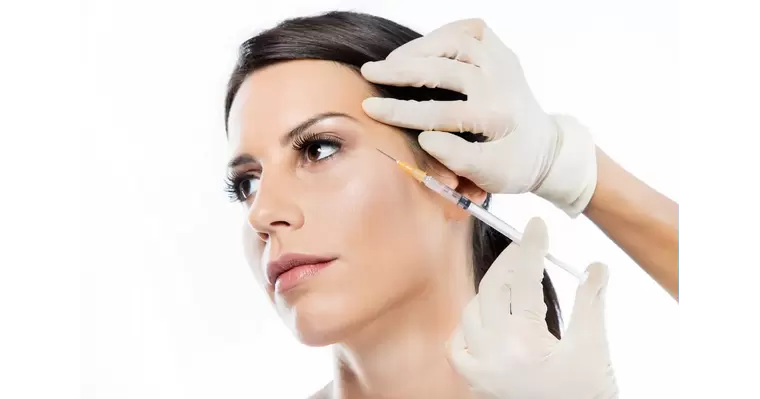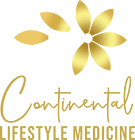
In recent years, the skincare industry has witnessed a significant shift towards natural products, as consumers become more conscious of what they apply to their skin. This trend raises an important question: should you opt for natural skincare products or chemical ones? Understanding the differences between these two categories can help you make informed decisions that align with your skin type and personal values, especially when considering treatments at a beauty and wellness med spa.
Understanding Natural Skincare
Natural skincare products are typically made from plant-based ingredients and derived from nature. These formulations often contain essential oils, botanical extracts, vitamins, and minerals without synthetic additives or harsh chemicals. The appeal of natural skincare lies in its perceived safety and gentleness on the skin.
Benefits of Natural Skincare
1. Fewer Irritants: Many people experience sensitivity to synthetic chemicals found in conventional skincare products. Natural formulations often use fewer irritants, making them suitable for sensitive skin types.
2. Eco-Friendly: Most natural brands emphasize sustainability and environmentally friendly practices. Their ingredients are often biodegradable, and packaging is designed to reduce environmental impact.
3. Nourishing Properties: Ingredients like aloe vera, coconut oil, and shea butter are rich in nutrients that can provide hydration and nourishment to the skin.
4. Holistic Approach: Many natural skincare lines adopt a holistic approach to beauty, focusing not just on appearance but also on overall well-being.
Drawbacks of Natural Skincare
1. Shorter Shelf Life: Without preservatives, natural products may have a shorter shelf life compared to their chemical counterparts.
2. Limited Efficacy: Some argue that while natural ingredients are gentle, they may not always be as effective in treating specific skin concerns like acne or hyperpigmentation as some chemical options.
3. Potential Allergens: Just because something is natural doesn't mean it’s hypoallergenic; certain plant extracts can still cause allergic reactions in some individuals.
Understanding Chemical Skincare
Chemical skincare encompasses a broad range of products formulated with synthetic compounds designed for specific purposes—such as exfoliation, anti-aging effects, or acne treatment. These products often include active ingredients like retinoids, alpha hydroxy acids (AHAs), beta hydroxy acids (BHAs), and various peptides.
Benefits of Chemical Skincare
1. Targeted Treatments: Chemical ingredients can effectively target specific issues such as fine lines, wrinkles, uneven texture, and acne due to their potent formulations.
2. Scientific Backing: Many chemical ingredients have been extensively studied for their efficacy through clinical trials and research findings.
3. Longer Shelf Life: Synthetic preservatives allow these products to last longer without spoiling or losing effectiveness over time.
4. Variety of Options: There is a vast array of chemical treatments available catering to different skin concerns—from serums packed with antioxidants to peels that promote cell turnover.
Drawbacks of Chemical Skincare
1. Skin Sensitivity: Some individuals may find that certain chemicals irritate their skin or cause adverse reactions.
2. Harshness: Strong formulations may lead to over-exfoliation or dryness if not used properly; this is particularly true for AHAs/BHAs which can strip away too much moisture if applied excessively.
3. Environmental Concerns: The production processes for some synthetic ingredients may raise environmental concerns regarding pollution or non-sustainable sourcing practices.
Choosing What’s Right for You
When deciding between natural versus chemical skincare options, consider the following factors:
1. Skin Type
Your unique skin type plays a crucial role in determining which category might work best for you:
- For sensitive or reactive skin types, starting with gentle natural products could be beneficial.
- If you struggle with persistent issues such as severe acne or aging signs, incorporating targeted chemical treatments might yield better results.
2. Specific Skin Concerns
Identify your primary goals—whether it's hydration, anti-aging benefits, blemish control—or even combination approaches where both types complement each other effectively based on ingredient synergy!
3. Ingredient Awareness
Learn about key ingredients in both categories:
- Research common chemicals (like salicylic acid) known for treating acne versus natural alternatives (like tea tree oil).
- Understand potential allergens within both realms so you know what works best without causing irritation!
4. Patch Testing
Regardless of whether opting for a new product from either side—always perform patch tests before full application! This helps ensure no unwanted reactions occur after widespread usage occurs across larger areas!
Conclusion
Both natural and chemical skincare have their merits and drawbacks; ultimately choosing one depends on individual preferences combined with needs tailored specifically toward achieving healthy glowing complexion! Consider trying out hybrid solutions that utilize beneficial aspects from both worlds—for instance using gentle cleansing oils alongside targeted serums containing powerful actives—to create an optimal routine suited uniquely just-for-you!
In summary—it’s essential not only focus solely upon labels declaring “natural” versus “chemical,” but rather delve deeper into understanding how particular components interact together while keeping mind personal goals surrounding desired outcomes achieved through diligent care taken towards maintaining beautiful radiant healthy skin!
FAQs
What types of treatments are offered at a beauty and wellness med spa?
A beauty and wellness med spa typically offers a wide range of treatments that focus on both aesthetic enhancements and overall well-being. Common services include Botox and dermal fillers, chemical peels, laser hair removal, skin rejuvenation treatments, massage therapy, facials, and body contouring procedures. These spas often combine medical expertise with spa-like experiences to provide clients with effective solutions for their beauty and wellness needs.
How often should I schedule my appointments at a med spa for optimal results?
The frequency of your visits to a beauty and wellness med spa depends on the specific treatments you receive. For example, Botox is usually recommended every three to six months to maintain results, while chemical peels might be suggested every four to six weeks based on your skin type. It’s essential to consult with your provider during your initial visit; they can create a personalized treatment plan tailored to your goals and skin condition.
Are the treatments at a med spa safe?
Yes, most treatments offered at reputable beauty and wellness med spas are safe when performed by licensed professionals who follow industry standards. It's crucial to choose a med spa with qualified staff—such as board-certified dermatologists or licensed aestheticians—who have extensive training in the procedures they perform. Always discuss any concerns or medical conditions with your provider prior to treatment to ensure safety and efficacy.
















.png)
.png)








Leave Your Comment & Rating Below
0 Comment(s)